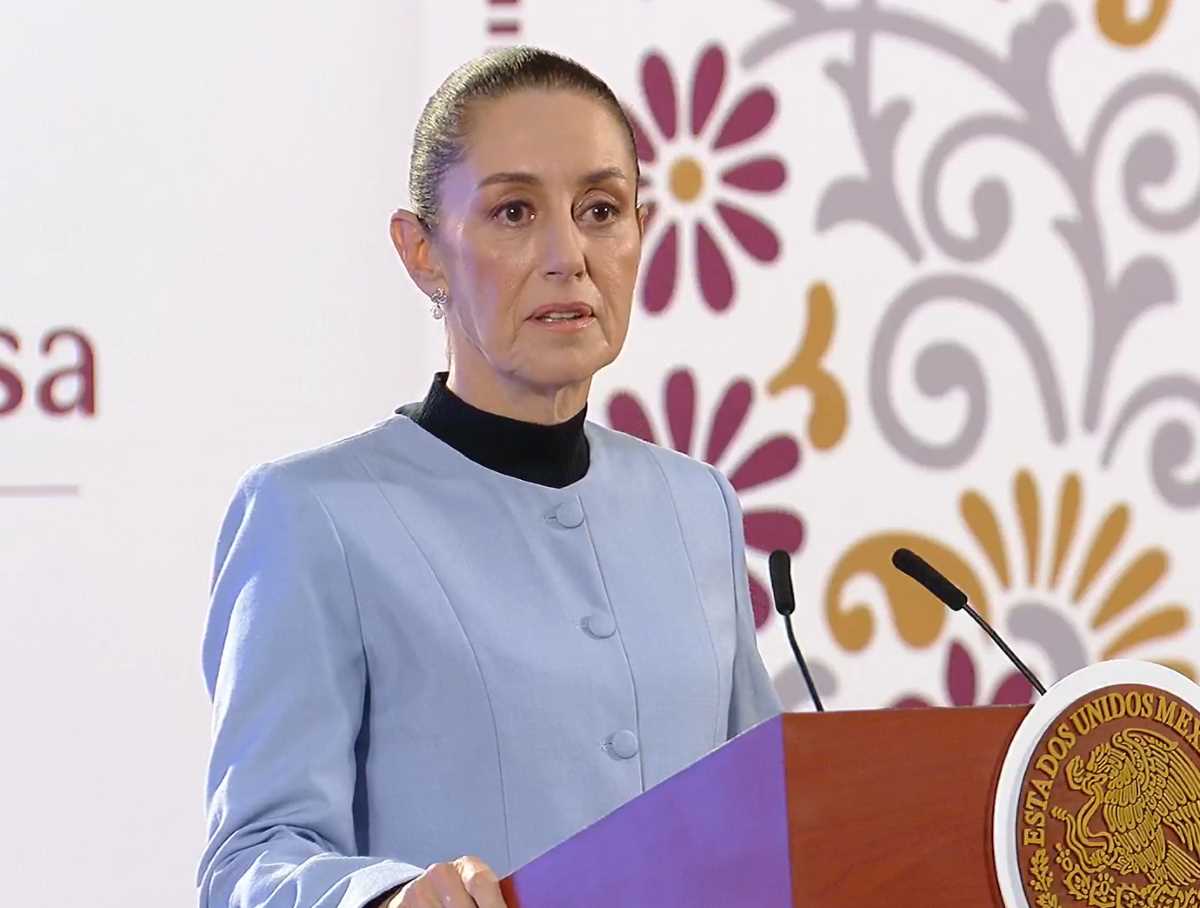Sheinbaum Defies Supreme Court, Pledges Judicial Reform
President Sheinbaum pushes judicial reform for elected judges, energy overhaul passes Chamber of Deputies, and infrastructure program to fix roads announced. Administration also focuses on standardizing femicide classification and condemns harassment of female legislator.

In her Thursday People’s Morning Conference, Mexican President Claudia Sheinbaum addressed a range of pressing national issues, underscoring her administration’s commitment to reforming the judiciary, advancing energy sovereignty, and combating gender-based violence. Her remarks provided insight into the key initiatives that will shape the remainder of her presidency, reflecting a bold agenda aimed at structural transformation in Mexico.
One of the most controversial elements of Sheinbaum’s speech was her insistence on moving forward with judicial elections—a step that is set to dramatically alter the landscape of Mexico’s legal system. With these elections, Mexico will see judges, magistrates, and ministers elected by popular vote, a measure introduced via a recent constitutional reform.
President Sheinbaum addressed the opposition's criticisms head-on, stating, “The call is to accept that there is a constitutional reform, that there will be no setback in the election of judges, magistrates, and ministers, for one reason: it is a decision of the people.”
Her remarks reaffirmed that this transformation has already been set in motion, dismissing any possibility of reverting the reform. Notably, she emphasized the role of the Federal Judicial Council (CJF), which recently voted 4-3 in favor of delivering the list of available judges and magistrates for the election to the Senate. However, the close vote revealed significant internal resistance within the judicial ranks, with three CJF members opposing the release of this information.
The reform, which would place judicial appointments in the hands of the electorate, has sparked intense debate, with critics warning of potential politicization of the judiciary. Sheinbaum’s administration counters these concerns by portraying the change as a democratizing move aimed at enhancing the legitimacy of the courts.
Energy Reform
In a separate segment of the conference, Sheinbaum celebrated the approval of a sweeping energy reform by Mexico’s Chamber of Deputies. The reform, which passed with 350 votes in favor, 111 against, and one abstention, seeks to undo key elements of the 2013 energy reform that opened the sector to private investment. Its goal, according to Sheinbaum, is to restore Mexico’s energy sovereignty.
“The reform is about reclaiming our resources and ensuring that Mexico benefits first and foremost from its own energy production,” Sheinbaum said, adding that many business leaders—both domestic and foreign—are eager to invest in the country’s energy infrastructure.
Her administration has made clear that energy independence is a priority, both to ensure Mexico’s self-sufficiency and to guard against future geopolitical instability. The reform will next go to the Senate for discussion and approval, but it already signals a profound shift in Mexico’s energy policy, reversing years of privatization in favor of state control.
As part of her efforts to draw investment to the sector, Sheinbaum also announced that she will meet with American business leaders on October 15 to discuss potential partnerships in the wake of the reform. Her outreach suggests that while the government is rolling back privatization, there remains significant space for private-sector involvement under the new rules.
Infrastructure Challenges
Another noteworthy initiative announced during the morning conference was the launch of the so-called “Bachetón,” a major public works program focused on repairing potholes across Mexico’s roads. The program, set to begin in November, will aim to fix 44,600 kilometers of roads across the country’s 32 states. With an investment of 4 billion pesos, the Federal Highway Conservation Program is designed to address one of the most common complaints voiced by citizens during public surveys.
“When surveys are conducted by INEGI, the problem that most affects citizens is potholes. What corresponds to the Federal Government are the federal highways,” Sheinbaum explained.
The “Bachetón” initiative speaks to the broader challenge of infrastructure development in Mexico, particularly in rural areas where poor road conditions have long hampered economic growth and development. This program is part of a larger push to improve the country’s transportation network, addressing a key source of frustration for both businesses and everyday citizens alike.
Feminicide
Shifting gears to a topic of deep social importance, President Sheinbaum reaffirmed her administration’s commitment to addressing gender-based violence, particularly the widespread issue of feminicide. On October 3, Sheinbaum sent a landmark initiative to Mexico’s Congress aimed at standardizing the legal definition of feminicide across the country.
"What we want is for the violent death of a woman to always be classified as feminicide and investigated as such. If the investigation shows that it was another motive, then the feminicide is discarded, but the objective is for it to be classified as feminicide from the start,” Sheinbaum declared.
The proposal is a response to widespread calls for clearer guidelines on investigating gender-based violence. Inconsistent classification and prosecution of feminicide cases have long plagued the Mexican justice system, with many cases being miscategorized under other crimes, thus delaying or obstructing justice for victims.
If passed, the reform would mandate that the violent death of a woman is presumed to be a feminicide until proven otherwise—a critical shift in legal perspective that aims to expedite investigations and improve conviction rates. This reform aligns with Sheinbaum’s broader feminist platform, which has been a cornerstone of her presidency.
Machismo in Politics
In a powerful closing statement, President Sheinbaum also condemned the recent harassment of Senator Andrea Chávez, a member of her own Morena party. Chávez, who has faced targeted online attacks, was the subject of an AI-generated image that Sheinbaum called degrading.
“When you don’t agree with a political decision or a statement made by a legislator, but her status as a woman is used to denigrate her, it is part of this process. All women, some more than others, have experienced machismo against us, even harassment,” said Sheinbaum, expressing her solidarity with the young senator.
This episode underscores the broader cultural challenges facing women in Mexican politics. Despite progress on the legislative front, machismo and gender-based harassment remain pervasive. By addressing this issue publicly, Sheinbaum reiterated her administration's stance on protecting women in the political sphere.
President Claudia Sheinbaum’s morning conference on October 10, 2024, illuminated the far-reaching agenda her administration is pursuing. From the judiciary to energy policy, infrastructure, and gender violence, the breadth of her initiatives reflects a presidency that seeks to overhaul not just policies, but the very structures of power in Mexico. As these reforms progress through the legislative process, they are certain to provoke continued debate, but one thing is clear: Sheinbaum’s vision for Mexico is ambitious, transformative, and unyielding.
Whether through reshaping the judiciary or redefining energy sovereignty, she has made it clear that her administration is committed to structural changes that will have lasting impacts on the nation.




